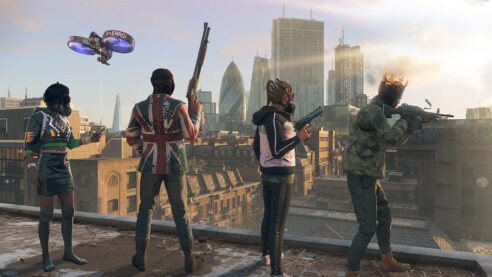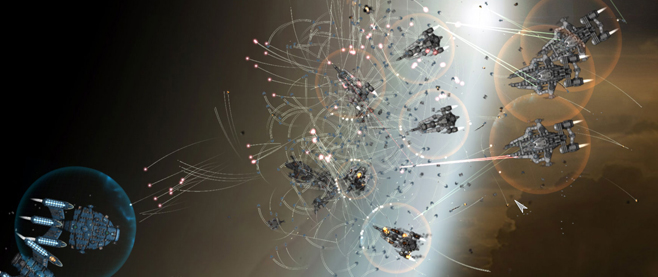
The Ambivalence of Resistance
According to Johnnemann Nordhagen, narrative design is “where game design and storytelling meet.” In the case of Watch Dogs: Legion (2020), the point is to incorporate the theme of resistance into an enjoyable interaction. This time, with the introduction of the Play-As-Anyone system, almost every person we meet on the street can be headhunted as a member of the resistance movement. Instead of indulging in the sheer pleasure of an almost omnipotent man seeking revenge and justice, Legion tries to repose hope in every single man and woman who would like to rise up against common enemies of the people.
However, as it progresses, the limitations of game design become apparent. Since most videogames are designed to be played by only one person at a time, the core idea of “teamwork” is reduced to a one-man show in the actual gameplay. Surely, people in London have their reasons to fight back, but not all of them fit the requirement of resistance. In order to sneak into the heart of a heavily fortified stronghold, one is more likely to select a professional with special skillsets rather than a flatulent guy with low mobility. Upon the completion of the storyline, I checked my team and found that most of my playtime was devoted to a small number of operatives. The Play-As-Anyone system promises players a higher degree of freedom, but in practice, it imposes restrictions on players to fully realize its potential. As a result, the prowess of a new, interesting mechanic is not entirely brought into play.
If the Play-As-Anyone game design can be considered impressive but underbaked due to technological restraints, storytelling, as the other side of the coin, suffers from the futile illusion of returning to an impossible state of “normality.”
Following a series of bombing attacks in London, the whole city is completely disrupted. Mass surveillance, private military and organized crime move in as a matter of course. And DedSec, as Ubisoft describes it, is a group committed to giving London back to the people and to help set things right in the midst of this chaos.
With this premise in mind, it is our turn to recruit, regroup and resist. Many residents are normally ordinary people not satisfied with the situation, but the discontent is obscured under oppression. They need someone to ignite their resentment. Every time an uprising is triggered in a borough, there are some inspiring changes. Checkpoints in this area are destroyed. Slogans appear on the exteriors of iconic buildings, with people watching splendid fireworks in the night sky. In the battle against hostile factions, London’s order is being restored bit by bit. Governmental corruption and bugging conspiracy are exposed. Albion’s abuse of power is scrutinized and its henchmen can hardly put up their arrogant airs again. Organized crime rings are being expelled from local communities. DedSec is exonerated and their deeds encourage more activists to stand up and speak out.

Lamentably, these laborious struggles do not change the fact that the performance of resistance does not create a vision for the future. While this lack of imagination should have been a universal feature, what really makes Legion different from its predecessors is its attempt to cheat us with fake appeals. From official websites to in-game dialogues and missions, resistance is a word that has been repeatedly mentioned. To all appearances, it is what Legion is all about. The whole movement is driven by an impulse to eject the scumbags with ulterior motives and shatter the shackle of their draconian control. However, these causes are only validated by the presence of opposing forces and their impersonated proxies. Once these antagonizing powers are crushed, the rationality that sustains and justifies our actions will be accordingly diluted and quickly absorbed. All that remains, similar to what Raymond Williams observed, will be “a mood of both stagnation and restlessness.”
When Legion was released in October 2020, the coronavirus was still rampant in the world. And when the pandemic was no longer declared a global health emergency, our lives did not return to what they looked like before. In the same vein, London has no escape route to the good old days. Yet Legion fudges this issue by mystifying a not-so-novel present into a bright future that we should strive for. Disguised in the posture of resistance, Legion resorts to a gimmick of one step back and one step forward. The prologue’s Zero Day attack primarily serves to pave the way for the debut of major antagonists who will instigate a techno-authoritarian dystopia. There is much on the surface of the game that refuses the conventional optimistic projection of progressivism. By stepping back, Legion retreats to its comfort zone and starts to sketch the ugly faces of technology-enhanced authoritarianism. After many challenges and setbacks, we are about to celebrate the success of toppling the villains, only to find that what we have just recaptured in the dim future is merely another reaffirmation of basic values under capitalism, with no further bearing on where we should be heading next.
Despite the news that Watch Dogs is “dead and buried” for now, the evolution of the series still reflects an interesting trajectory of endeavor. Many years ago, the game was obsessed with a superhero complex, dreaming of a vigilante or some bright-eyed hero storming the cruel establishment. Many years later, Legion is trying to refuse such fantasy and shifts its attention to common people. Though it is far from perfect, this transition shows the promising possibilities found in a videogame’s reflection of the real world. And I have faith in it.
———
Zonghang Zhou is a small-town boy seeking to write about games and culture in the English department. He is waiting with anticipation for someone to find him @zhzhou86.





